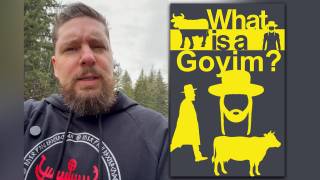Israeli lies unchecked, Palestinian perspectives censored on BBC
Source: globalresearch.ca

One of the most obvious examples of bias by the BBC is the taxpayer-funded broadcaster’s habit of inviting Israeli politicians or the Israeli government spokesperson, Mark Regev, onto its programs to speak without challenge. Meanwhile, Palestinians and those who would convey a Palestinian perspective are not given the same opportunity.
Film director Ken Loach recently learned that for the BBC, Palestine remains a taboo.
On 23 July, Loach was at the Royal Albert Hall in London to listen to a performance of Beethoven’s Fifth Symphony, performed by the West-Eastern Divan Orchestra. The orchestra consists of Israeli, Palestinian and other Arab musicians, and is conducted by Daniel Barenboim, who formed the orchestra in 1999 with the late Palestinian academic and activist Edward Said.
So when Loach was asked during the intermission for an interview by BBC Proms, which was recording the concert for later broadcast, he considered it reasonable to air his thoughts on the nature of the orchestra as well as the music.
Loach said that he spoke to the BBC journalist for five minutes, during which time he said: “Seeing Israelis and Arabs, including Palestinians, sitting side by side on the stage makes us confront the issue of the continuing oppression of the Palestinian people, and I shall be thinking of them when I hear the music tonight.”
These were typically compassionate words from a director whose films, including Land and Freedom about the revolutionaries who fought in the Spanish Civil War, often reflect his keen sense of justice.
However, for the BBC, which in the last six months has alternately denied the existence of Palestine and then the fact of Israel’s occupation, the mere mention of the fact of the Palestinian people’s oppression was too controversial to broadcast.
BBC admits to censorship
Loach received a phone call from the program producers informing him that his interview would be cut “due to the music over-running.” He sent an email to the BBC, which has been seen by this writer, stating:
“Thank you for letting me know about the broadcast and the need to shorten the interview. Of course I understand about length. But I would ask you to include my brief remarks about the orchestra and the Palestinians. As an opponent of oppression and tyranny I think Ludwig [van Beethoven] would have approved. It was one of the reasons I agreed to take part. I’m happy if you need to reduce my thoughts on the music itself.”
His email was ignored and the interview was broadcast three days later on BBC Proms with his observation about the oppression of the Palestinian people removed. The rest of the interview remained intact.
Loach said: “I called the producer, Oliver MacFarlane, who admitted they had deliberately cut the line about Palestine. He said if they’d included it they would have had to have a balancing interview. I wasn’t pleased and I responded robustly.”
When asked to respond to this, a BBC spokesperson stated: “As part of the BBC’s comprehensive music television coverage of The Proms, esteemed filmmaker Ken Loach was invited to comment on his personal passion for Beethoven, given the time slot available and the fact that this was a music television programme, the most editorially relevant sections of Mr. Loach’s interview were used in the final edit.”
Israeli spokespersons unchallenged
But if it was the case that the BBC did feel the need to “balance” Loach’s simple words about the ongoing oppression of the Palestinians, it has absolutely no qualms about airing, totally unopposed, the wild, often lurid, mostly fact-free statements made by Israeli ministers and spokespeople.
Take, for example, James Naughtie’s interview with Danny Ayalon on Radio 4’s Today program on 16 January 2012. The interview was conducted the day after the UN secretary general, Ban Ki-moon, called on Israel to end its occupation of Arab and Palestinian territories and to end its violence against civilians.
This strong UN criticism of Israel was completely ignored by Naughtie, who focused on Iran with the unquestioned premise of the interview being that Iran is, without a doubt, developing nuclear weapons and consequently poses a grave threat to Israel.
Ayalon had been on air for less than a second when he said: “What we see here is a drive, a relentless push by Iran to illegally acquire and develop nuclear weapons and for them it’s not just a means, it’s a way to reach hegemony to continue with their very dangerous and radical approach.”
He went on to say: “Today Iran is the international hub of terror in the world.”
This was clearly Israeli propaganda; Ayalon used the BBC to loudly bang the drums of war against Iran. Yet Naughtie neither challenged his unfounded opinions, which were presented as facts, nor brought in someone to present an alternative viewpoint.
Ayalon’s wild accusations, so much more controversial than Loach’s mild remarks, were certainly not cut for lack of a “balancing interview.” Nor was Ayalon questioned about Israel’s widely suspected nuclear arsenal or about Israel’s staunch refusal to allow international weapons inspections.
[...]
Read the full article at: globalresearch.ca






















